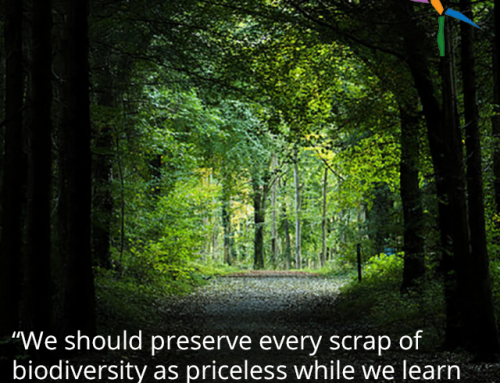Collect your ‘Bragging Rights’ Here.
 By Michael Beck
By Michael Beck
It feels great when you can do well by doing good – and get a nice sense of virtuousness in the process. The following is a short list of steps you can take immediately to reduce your household carbon footprint while in most cases saving money. Don’t hesitate to pat yourself on the back for any of these actions you have already taken. And it doesn’t hurt to remind yourself that every time you take such action, you are engaging in the win-win mindset (and mindfulness) that is the long-term goal of Postconsumers.
This is my first in an occasional series covering a variety of areas to reduce your carbon footprint; future lists will include, for example, measures to take when making significant purchases, and so forth. For the whole series I’ll be gleaning ideas from a number of sources.
For this first list I checked out the Union of Concerned Scientists. They are one of the best organizations anywhere for user-friendly, authoritative info on Climate Change. Visit their website’s global warming page, you won’t regret it.
____________________
Get a home energy audit.
Take advantage of the free home energy audits offered by many utilities. Simple measures, such as installing a programmable thermostat to replace your old dial unit or sealing and insulating heating and cooling ducts, can each reduce a typical family’s carbon dioxide emissions by about 5 percent.
Light bulbs matter.
If every household in the United States replaced one regular light bulb with an energy-saving model, we could reduce global warming pollution by the same amount as taking 6.3 million cars off the road. Efficient compact fluorescents now come in all shapes and sizes. By using them you’ll cut back on heat-trapping pollution and save money on your electric bills and light bulbs.
Think before you drive.
Always plan ahead to combine trips as much as possible. Whenever feasible, join a carpool or take mass transit. If you own more than one vehicle, use the less fuel-efficient one only when you can fill it with passengers. Driving a full minivan may be kinder to the environment than two midsize cars.
Plant a tree.
You can also make a difference in your own backyard. Get a group in your neighborhood together and contact your local arborist or urban forester about planting trees on private property and public land. In addition to storing carbon, trees planted in and around urban areas and residences can provide much-needed shade in the summer, reducing energy bills and fossil fuel use.
Develop a household plan.
Work out a plan to reduce daily electricity use around your home by asking each member of your household to take responsibility for a different electricity-saving action.
Unplug a freezer.
One of the quickest ways to reduce your global warming impact is to unplug the extra refrigerator or freezer you rarely use (except when you need it for holidays and parties). This can reduce the typical family’s carbon dioxide emissions by nearly 10 percent.
________________________________________________________ ___________ **
___________ **
Image: The vanishing Wilkins Ice Shelf on the Antarctic Peninsula.
Almost the entire loss (blue) has occurred since 1990. This kind of accelerating symptom of global warming will show up ever more frequently – unless humanity learns to direct the world’s economy away from consumerism and towards satisfaction of core values.
_____________________





